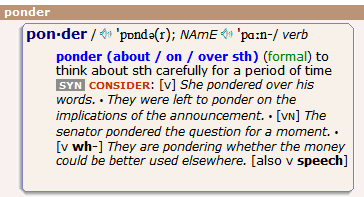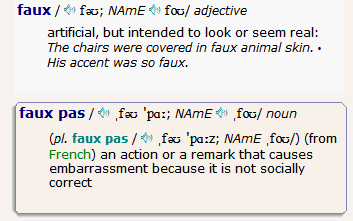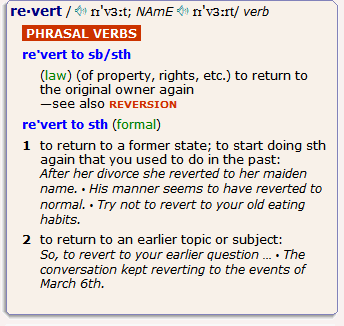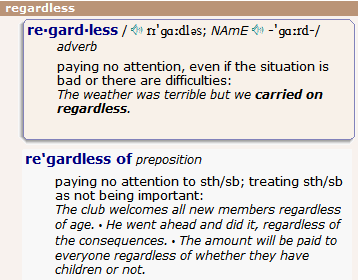The next dictionary that I used was the Oxford Paperback Dictionary. It's so good I'd been using it for over 15 years. It has words like Stephan Hawking, George Bush, Seneca, Gaza Strip, Madonna... the so called 'encyclopaedic entries'. These are words that other dictionaries are loathe to include since the 'importance' of proper nouns is really subjective and it's difficult to decide which ones are more 'worthy' to be included in the dictionary. As I'm going to take the CELTA course (to improve my blogging) next month in Siam (so probably no blogging for the entire month), I thought it'd be good to buy a 'learner's dictionary'.
Now, most people who have learnt English as a second language would probably have come across the Oxford Advanced Learner's Dictionary. Heck, on the fascinating history of the OALD website, it says that it's probably the most pirated book in the world LOL. I looked at the copy that my parents used; it was a 1974 edition with Chinese translation (not pirated, as far as I can tell!). AS Hornby wrote the first edition in 1948, in wartime Japan. Since then, the dictionary has sold 30 million copies, and is still selling at the rate of one copy every minute. Now I've had the impression that the OALD is fine for 'learners', or 'beginners'. It not only has the usual definitions, it includes sample sentences to illustrate exactly how a word is supposed to be used. The only thing that a more 'advanced' person might be concerned about is the relatively fewer number of headwords it includes compared to a 'non-learner's' dictionary.
The lastest 2005 Seventh Edition paints a different picture. It now contains 183,500 British and American English words, phrases and meanings. Now, it is unclear how many headwords this actually represents, but the numbers sure look formidable. So what I did was to go to Borders for a couple of hours and randomly picked pages, and see how it compares to the newest edition of the Paperback dictionary. My findings were favourable; the OALD doesn't lose out much, and in fact it includes headwords that the Paperback doesn't. So that was a pleasant surprise.
There are a few competitors in the 'learners' dictionary market. Coming in a close second is Longman's Dictionary of Contemporary English. Third place goes to the very new Cambridge Advanced Learner's Dictionary. I think that the bad thing about the Cambridge dictionary is a problem with the user interface (UI). It's like comparing the UI of a Palm and a PocketPC, or an iPod with a Zen; it's about how the whole thing is put together. And to this end, the OALD is tops. The fonts, font size and colour, symbols, example sentences, parts of speech etc. are all exquisitely presented in an intuitive manner. It's simply a joy to read. (Off topic: my favourite online dictionary is the Merriam-Webster. I've included a link to it on the right margin.) So anyway, I've decided to use the OALD as my 'default' dictionary. It's too bad 'Cartland, Dame Barbara Hamilton (born 1901), English writer of romantic fiction.' isn't listed. Well, you win some and you lose some... So I'd highly recommend this if you're looking for a new dictionary. It's OK even if you're not exactly a 'learner'. Also, get the cheaper International Student's Edition from Kinokuniya, and remember to choose the version with the CD-ROM. Here're some screenshots. :)



 Update (!): Just a short note on my new findings. The Longman dictionary has one remarkable feature: audio entries of tens of thousands of sample sentences on the CD-ROM. The OALD also has audio pronunciations (both British and American English), but only of headwords. I still prefer the latter though. The Longman cannot hold a candle to the OALD in terms of extra help in grammar and other useful information. As for online presence, the OALD, Longman, and M-W.com all provide plenty of good stuff...
Update (!): Just a short note on my new findings. The Longman dictionary has one remarkable feature: audio entries of tens of thousands of sample sentences on the CD-ROM. The OALD also has audio pronunciations (both British and American English), but only of headwords. I still prefer the latter though. The Longman cannot hold a candle to the OALD in terms of extra help in grammar and other useful information. As for online presence, the OALD, Longman, and M-W.com all provide plenty of good stuff...2013 Update (!): My favourite online dictionary is now the OALD., the paper version is now in its 8th edition.


